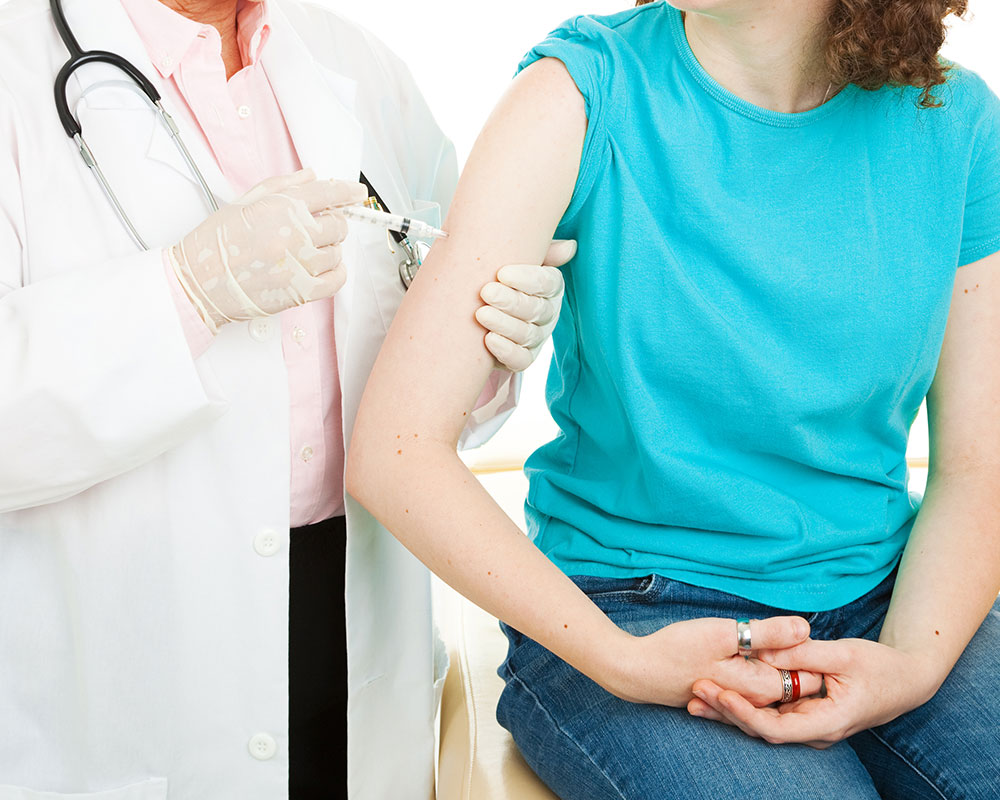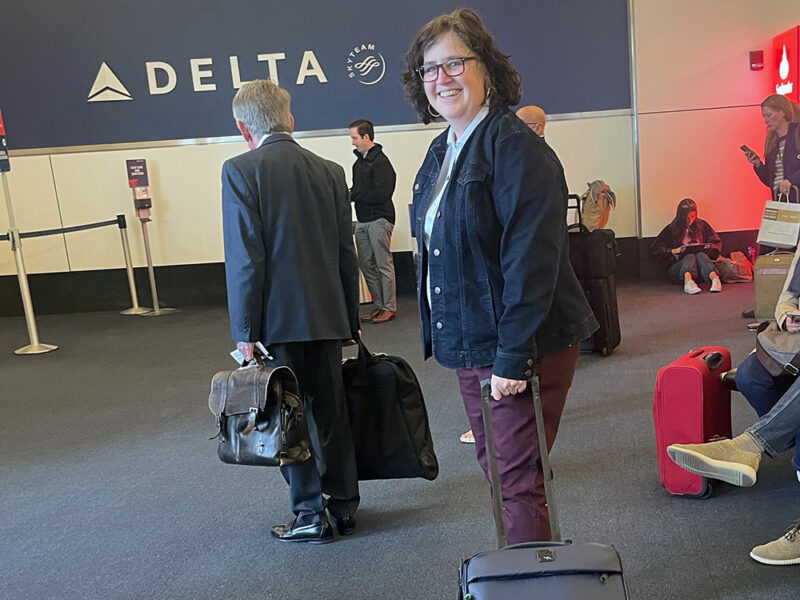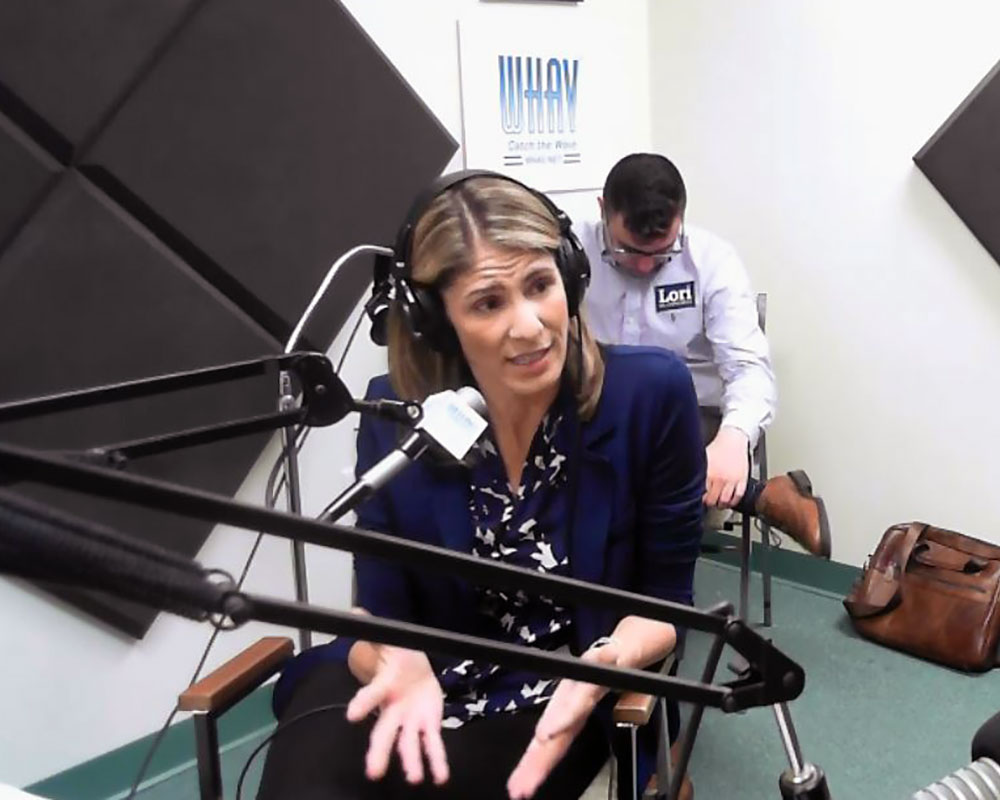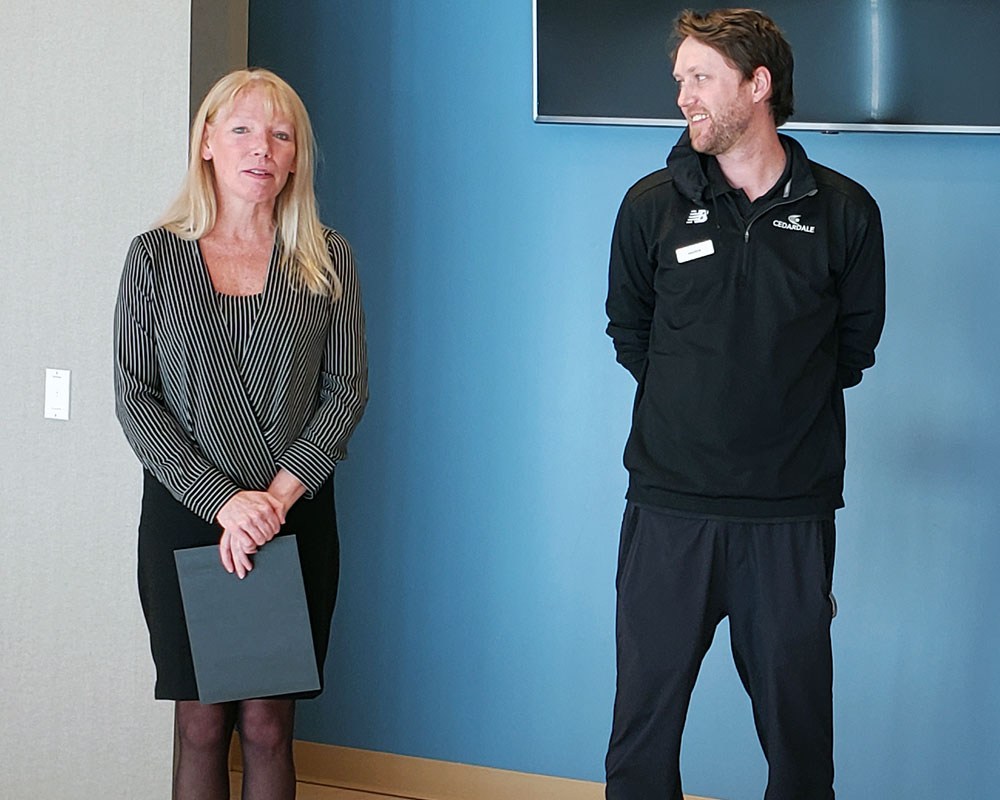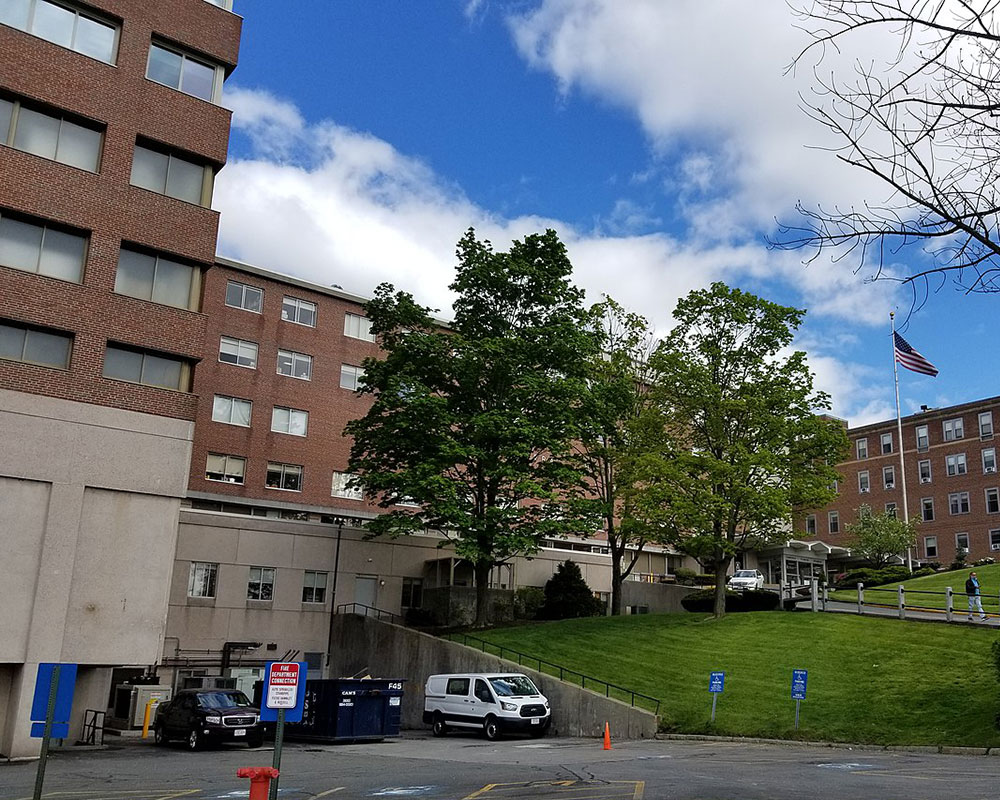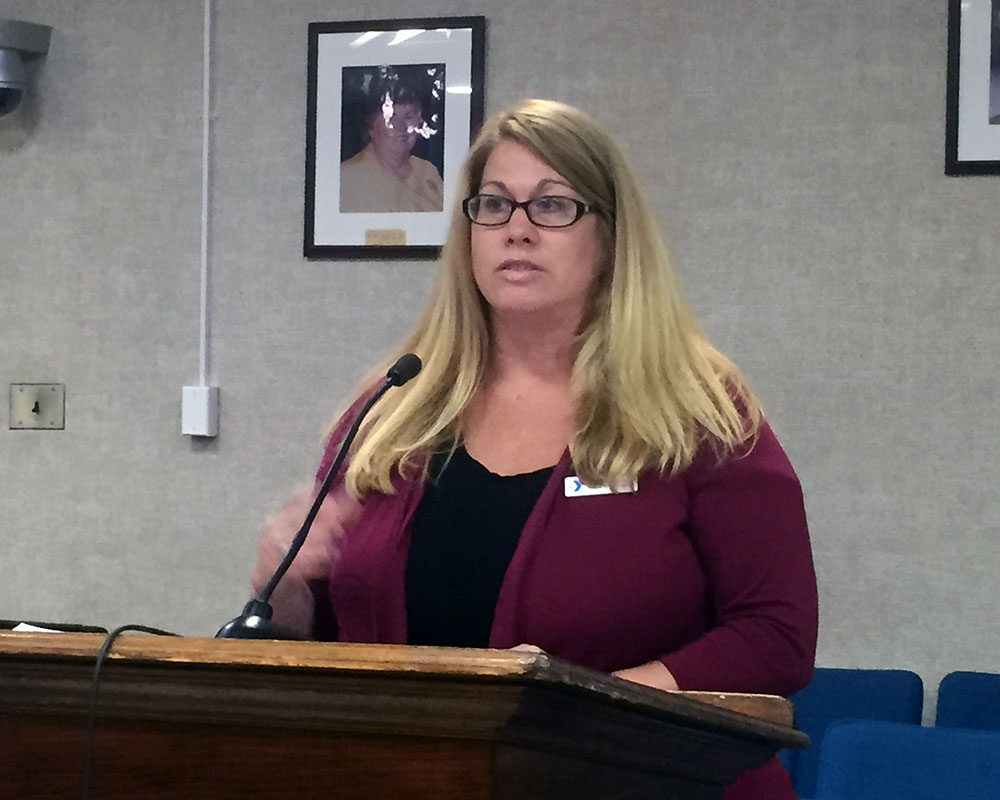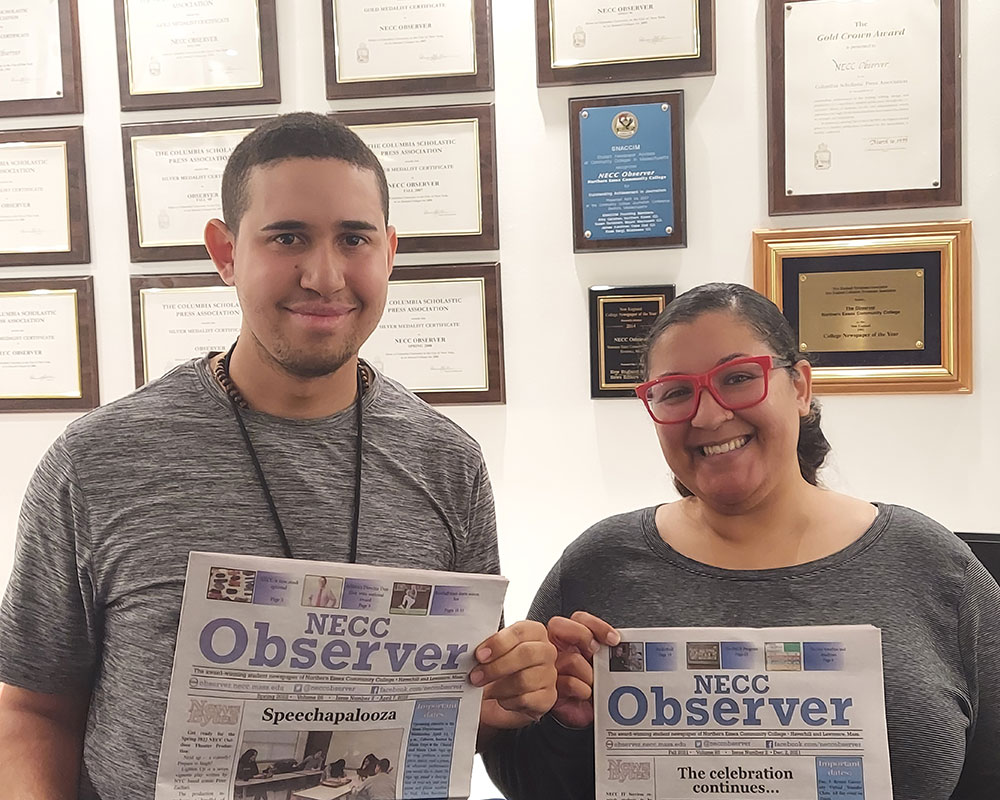The Haverhill Public Health Department plans a flu and COVID-19 vaccine clinic next Tuesday. Shots are administered Tuesday, Nov. 14, from 1-6 p.m., at the Citizens Center, 10 Welcome St., Haverhill. The clinic is open only to Haverhill residents and walk-in space is limited. Pre-registration takes place online here.
COVID-19
Local Health Leaders Join Congresswoman Trahan in Support of Pandemic Preparedness
|
Armed with knowledge of the impacts of the COVID-19 pandemic, local health leaders joined with Congresswoman Lori Trahan Monday during a roundtable discussion of a proposed renewal of a law to guard against future “public health emergencies involving chemical, biological, radiological, and nuclear agents, as well as emerging infectious disease threats.”
Dr. Guy Fish, Greater Lawrence Family Health Center CEO and president, and Robin Hynds, Lawrence General Hospital executive vice president and chief operating officer, were part of a larger group that met with Massachusetts Health and Human Services Secretary Kate Walsh and Trahan, co-chair and co-founder of the Pandemic Preparedness Caucus. “There is simply no excuse for us to get caught flat-footed by another pandemic like COVID-19. We must apply the lessons learned over the past three years to ensure we’re better prepared to prevent another infectious disease outbreak in the future–and that’s exactly what our conversation today was about,” said Trahan. She advocated for renewal of the Pandemics and All-Hazards Preparedness Act, a law that enables development and “efficient and rapid deployment” of medical products. The current law expires at the end of September.
COVID-19
Methuen Education Official Calls Schools the ‘Prevention Arm of the Mental Health System’
|
A report that tapped a Methuen school official, among others, suggests the potential for schools and pediatric primary care providers to play a more significant role in addressing a “long-standing crisis” in children’s behavioral health,
The 45-page report, released Thursday by the Massachusetts Association of Health Plans, draws from 25 interviews with unnamed system insiders to lay out insights and recommendations for policymakers to weigh this year as the state begins implementation of a mental health access law that was signed in August. The mental health care law enacted over the summer calls for a statewide program to provide assistance for implementing behavioral health services in each school district, and requires each school committee to ensure that all schools have written medical and behavioral health emergency response plans. It also charged the state Health Policy Commission with preparing a behavioral health planning report every three years. “It will be essential to consider schools as the prevention arm of the mental health system writ large and the importance of leveraging schools to foster proactive, preventative identification of students with emerging mental health concerns and the delivery of evidence-based mental health services and supports for students,” said John Crocker, director of mental health and behavioral services for the Methuen Public Schools. Doing so, he said, “will require investment in capacity building for schools, both systematically to design comprehensive school mental health systems to organize and deploy services effectively and supporting school-based mental health staff’s professional development to deliver evidence-based therapeutic care to students.”
The report calls on Gov. Maura Healey’s administration to continue with a roadmap developed under Gov. Charlie Baker’s administration that aims to create a “front door” to the behavioral health care system.
COVID-19
New Law, Pushed by Trahan, Establishes Pilot Program to Prepare Experts for Next Pandemic
|
A new federal law, Bolstering Infectious Outbreaks (BIO) Preparedness Workforce Act, seeks to ensure the U.S. is never caught off guard again as it was during the COVID-19 pandemic. Last week, Congresswoman Lori Trahan, a co-founder of the bipartisan Pandemic Preparedness Caucus, secured passage of a pilot program to train and staff bio-preparedness and infectious disease experts. “There is simply no excuse for us to get caught flat-footed by another COVID-19 scale pandemic. We must apply the lessons learned over the past two and a half years now to ensure we’re better prepared to prevent another infectious disease outbreak in the future,” said Trahan. “Without critical investments to strengthen the pipeline of these experts, we risk leaving ourselves vulnerable to the next pandemic.
COVID-19
Podcast: Haverhill Health Dept. Plans Flu, COVID Booster Clinics; Expects Shots to Become Annual
|
Haverhill’s public health chief says consensus is building around updated COVID-19 vaccinations becoming as common as flu shots each year. During a recent interview on WHAV’s morning program, Haverhill Public Health Director Mary Connolly said yearly coronavirus inoculations would target various strains similar to formulas used in flu shots. “We were speaking with the state yesterday regarding that. It does seem like this is probably going to turn into an annual type of vaccine, yes,” she says. How that might roll out each fall is being demonstrated this month with flu and COVID-19 clinics offering a variety of vaccination options for residents.
COVID-19
FEMA Reimburses Lawrence General Hospital $3.2 Million for Pandemic-Related Costs
|
Lawrence General Hospital is receiving a $3.2 million federal reimbursement for its increased costs during the COVID-19 pandemic. The Federal Emergency Management Agency said Friday it will be sending more than $3.2 million public assistance grant to the state to reimburse the 189-bed general hospital in Lawrence which took extra steps to protect the health of its work force, patients and the general public while operating in a pandemic environment between July and September 2020. “FEMA is pleased to be able to assist Lawrence General Hospital with these costs,” said FEMA Region 1 Regional Administrator Lori Ehrlich. “Providing resources for our partners on the front lines of the pandemic fight is critical to their success, and our success as a nation.”
The expenses incurred included purchasing additional medical equipment and supplies for the treatment of COVID-19 patients; hiring additional medical care staff and supporting services; purchasing personal protective equipment, disinfection services and supplies; and using staff to manage access points and ensure COVID-19 protocols were followed.
Haverhill
Haverhill Nonprofits Detail Successes with City Youth Activities and Mental Health Grants
|
A grant of $500,000, shared among 29 different nonprofits serving the Haverhill youth, is a success according to those agencies, the kids involved and the Mental Health and Youth Advisory Committee that distributed the money. During last year’s city spending negotiations, Councilor Melinda E. Barrett engineered a compromise with Mayor James J. Fiorentini that created a Youth Activities and Mental Health Fund. The goal of that half million-dollar fund is to develop youth activities to offset the isolation experienced by many young people due to the COVID-19 pandemic. Youth Activities Committee Chair George Moriarty told councilors last week about the initial plan of action. “How do we get young people out to activities that get them to interact with other young people, with adults and to the city life here and what’s going on?”
Moriarty said the committee received 60 to 70 applications which were evaluated by the 15-member committee.
COVID-19
State Awards COVID-19 Grants to Haverhill and Lawrence Nonprofits Among Others
|
Haverhill’s Leaving the Streets Ministries and two Lawrence organizations are among those receiving additional state grants targeted to communities hardest hit by COVID-19. The money comes from the Massachusetts Vaccine Equity Initiative, aimed at increasing awareness and access to the COVID-19 vaccine and mitigating impacts of the pandemic. The latest grants are part of the Baker-Polito Administration’s $58 million vow to promote vaccine access and confidence, primarily in communities of color. Grants of between $38,500 and $125,000 were awarded to Leaving the Streets Ministries, founded by Chaplain Jesus Ruiz and his wife Wanda; Asociacion Ministerial Evangelica Del Area de Lawrence; and Centro de Apoyo Familiar of Lawrence. “Throughout the pandemic, we have turned to trusted community-based organizations who know their communities best,” said Public Health Commissioner Margret Cooke.
Education
NECC Observer School Paper Wins Gold Medal for its Pandemic Perseverance Online
|
Northern Essex Community College’s student newspaper, the NECC Observer, was awarded a gold medal from the Columbia Scholastic Press Association for its work and perseverance operating during the pandemic. During the 2020-2021 school year, the student newspaper did not have a print edition, but stories continued to be posted to its website. Judges wrote the Observer should be proud of what it accomplished under such difficult circumstances. The Observer was also awarded a gold medal for its work during the prior school year, when it was also all online. The newspaper had the additional distinction of All Columbia Honors for receiving an exceptionally high judging score that year.
